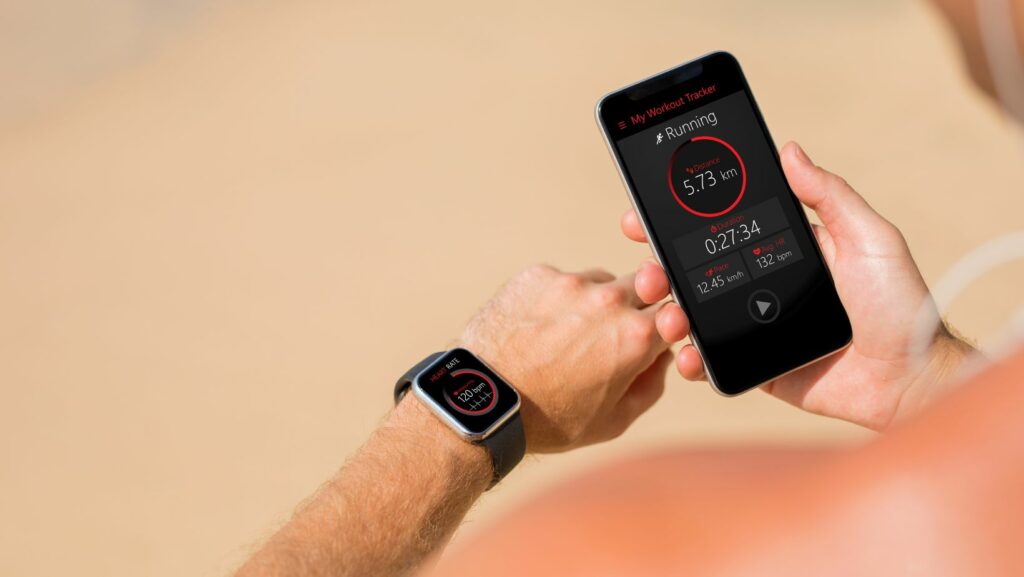In today’s fast-paced world, staying fit isn’t just a goal; it’s a necessity. Amidst busy schedules and ever-changing health trends, fitness tech companies are stepping up to transform how people approach wellness. With innovative gadgets and apps, they’re making it easier than ever to track progress, stay motivated, and achieve fitness goals. These companies aren’t just selling products; they’re creating ecosystems that integrate seamlessly into daily lives, ensuring that fitness is within everyone’s reach.
Fitness Tech Companies
 Fitness tech companies continue to play a pivotal role in transforming how people manage their wellness regimes. They leverage cutting-edge technology to enhance user experiences and improve health outcomes.
Fitness tech companies continue to play a pivotal role in transforming how people manage their wellness regimes. They leverage cutting-edge technology to enhance user experiences and improve health outcomes.
The foundation of today’s thriving fitness technology market was laid by early innovators who recognized the potential of technology in fitness. Companies like Fitbit, which launched its first product in 2009, pioneered the space with devices that tracked daily activity levels and calories burned. These early products featured interfaces that allowed users to sync their physical activities with computers and smartphones, setting the stage for the next wave of innovations.
The Rise of Wearable Technology
As technology advanced, the adoption of wearable fitness devices surged. Fitbit’s success paved the way for other companies, such as Garmin and Apple, to introduce their own versions of fitness trackers and smartwatches. These devices provided more detailed insights into personal health metrics like heart rate, sleep patterns, and even stress levels. Their integration with mobile apps made it easier for users to access their data, track their progress over time, and set personalized health goals. This rise in wearable technology not only fueled consumer interest but also prompted further research and development in the sector, leading to more sophisticated and multifunctional devices.
Key Players in the Fitness Tech Industry
Leading Startups and Their Innovations
 Startups in the fitness tech sector often introduce groundbreaking innovations. Companies like Mirror and Tonal provide smart home gym solutions that incorporate AI technology to personalize workouts and offer real-time feedback. Peloton stands out with its interactive fitness equipment, merging high-end hardware with live and on-demand class streams, which has redefined home workouts. Another notable startup, Whoop, offers a wrist-worn heart rate monitor that provides athletes and fitness enthusiasts with detailed data on recovery, strain, and sleep.
Startups in the fitness tech sector often introduce groundbreaking innovations. Companies like Mirror and Tonal provide smart home gym solutions that incorporate AI technology to personalize workouts and offer real-time feedback. Peloton stands out with its interactive fitness equipment, merging high-end hardware with live and on-demand class streams, which has redefined home workouts. Another notable startup, Whoop, offers a wrist-worn heart rate monitor that provides athletes and fitness enthusiasts with detailed data on recovery, strain, and sleep.
Major technology firms play a critical role in shaping the fitness technology landscape. Apple’s integration of health tracking in its Apple Watch series has made it a staple in fitness tracking, consolidates various health metrics on a comprehensive platform. Similarly, Google, with its acquisition of Fitbit, has enhanced its position in the fitness tech market, focusing on innovation in wellness apps and wearables. The participation of these tech titans not only enhances product offerings but also significantly drives consumer adoption rates and shapes fitness trends globally.
Advancements in Fitness Technology
As fitness technology evolves, its impact on health and wellness continues to grow. Innovations like AI and gamification are reshaping the way consumers interact with their health devices, offering more personalized and engaging experiences.
AI and Machine Learning in Fitness
 Artificial intelligence (AI) and machine-learning technologies are revolutionizing fitness technology by providing more personalized workout and health management experiences. These tools analyze large volumes of data to offer tailored insights and recommendations. For instance, AI algorithms can predict when users are at risk of overtraining or suggest personalized recovery strategies based on individual performance data and health indicators. Companies like Whoop utilize machine learning to tailor daily workout intensities and recovery suggestions, optimizing individual health outcomes effectively.
Artificial intelligence (AI) and machine-learning technologies are revolutionizing fitness technology by providing more personalized workout and health management experiences. These tools analyze large volumes of data to offer tailored insights and recommendations. For instance, AI algorithms can predict when users are at risk of overtraining or suggest personalized recovery strategies based on individual performance data and health indicators. Companies like Whoop utilize machine learning to tailor daily workout intensities and recovery suggestions, optimizing individual health outcomes effectively.
Gamification of Fitness
Gamification introduces elements commonly found in games, such like points, levels, and challenges, into fitness activities to make them more fun and motivating. This strategy not only engages users but also encourages consistent physical activity, making it less of a chore and more of a rewarding game. Products like the Peloton bike utilize gamification by offering competitive leaderboards and real-time feedback, providing a gaming-like experience that motivates users to push their limits. Similarly, apps such as Zombies, Run! turn a typical jog into an immersive narrative experience, engaging users to be active through story-driven workouts. These engaging experiences, fostered by gamification, prove vital in maintaining user interest and adherence to fitness routines.

